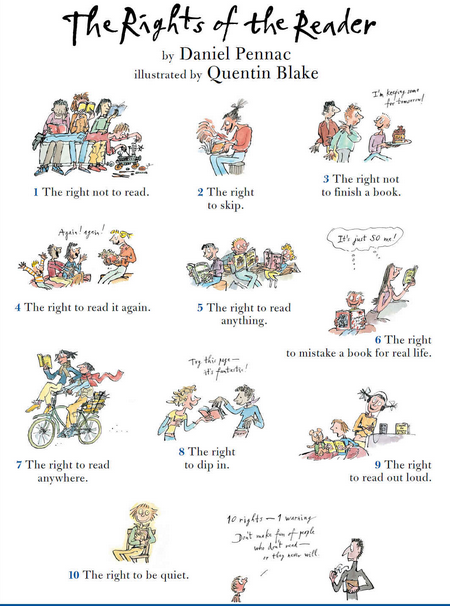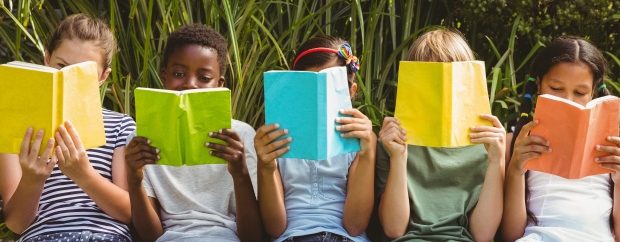
Reading
At Archibald First School, we recognise the distinction between learning to read and reading to learn and understand the importance of structuring the teaching of reading appropriately through Early Years, Key Stage 1 to lower Key Stage 2.
Reading is a valuable, lifelong skill that intersects all areas of the curriculum. We develop our pupils through independent and shared reading as well as cross-curricular sessions which empower them to find pleasure in reading and actively promotes the acquisition of reading skills in all subjects. We aim to support all children to achieve their reading potential.
The overarching aim for English in the National Curriculum is to promote high standards of language and literacy by equipping pupils with a strong command of the spoken and written language, and to develop their love of literature through widespread reading for enjoyment.
(National Curriculum, DfE 2014)
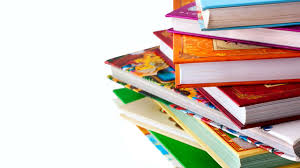
Reading Schemes
We aim to provide a broad and balanced reading experience for the children throughout their time at Archibald.
The school follows Little Wandle Letters and Sounds systematic synthetic phonics programme to teach phonics and develop Early Reading. In Reception and Year 1 the children are heard to read twice a week in Reading Practise groups linked to their phonic learning stage. The scheme uses phonetically decodable reading books pitched at a level thechildren are able to recognise the letters and blend them together to read words. The children also have access to a variety of other reading/picture books which ensures that all children have access to a wide range of books inclusive of fiction, non-fiction and poetry, and this book is a reading book for pleasure.
The children in Reception and Year 1 have their reading books selected for them by their teacher. Receiving two books a week, the children are given:
- A phonic based book that correlates to their current phonics teaching and learning following Little Wandle guidance and the book they have read in their reading practice session
- A free choice book as a book for pleasure
From Year 2 onwards, once the children have successfully completed Phase 5 phonics, the children are encouraged and shown how to change their own books. This gives the children a level of responsibility and independence while also allowing the children to select books that interest them! We strongly advocate that by reading books that they have chosen this will only enhance their love of books as they read for pleasure.
In terms of school books, classes will have different arrangements for changing books which are shared with parents and carers. Reading diaries are used to record engagement in home reading and share children’s reading progress.

Practice Reading Groups
In Reception and Year 1 the children are heard read in groups twice a week. These sessions are well planned and are designed to enable the children to become confident readers. The reading practice sessions focus on three key reading skills –
- Decoding
- Prosody – reading with meaning, stress and intonation
- Comprehension – understanding the text, using their skills of retrieval, inference, questioning, predicting and summarizing when reading.
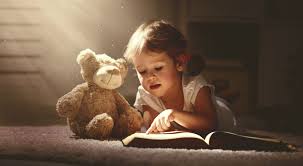
Once the children are in Year 2 and flowing through into Key Stage 2, the children have a more traditional guided reading session. It is important that children have the opportunity to read widely, and to apply and develop their knowledge and skills across the curriculum.
Using a mixture of fiction books, well-known authors, poetry books, books linked to topic work and non-fiction texts including those linked to current affairs allows all children’s interests to be catered for as well as showing children that a whole text does not always have to be the length of a novel (which can be overwhelming for some readers). This also helps children to read independently for meaning across any whole text, not just a page or sentence.

Class Reading
A key aim is to develop reading for pleasure and a passion for books. To support this, each class has timetabled sessions for class reading. A ‘Cheeky Five…’ approach is also taken when classes have additional reading slots during the timetabled week.
Within this time, we use quality children’s books to develop our reading for pleasure agenda. Texts have been chosen to ensure that each class encounters a balance of different texts types in order to successfully navigate reading with confidence (Reading Reconsidered – Doug Lemov). These are:
- Archaic Texts – texts where the vocabulary, usage, syntax and context are vastly different to modern texts.
- Non-Linear Time Sequences – events do not unfold in a sequence
- Complexity of the Narrator – a range of narrators or narrators who may have a defined viewpoint.
- Complexity of the Plot – what does it mean
- Resistant Texts – discover the meaning through hints, clues and uncertainties
In addition to these texts, teachers will select class texts based on children’s interests, learning themes, and popular culture.
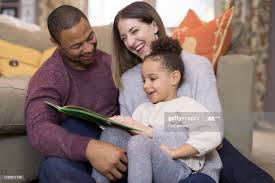
Wider Reading
We actively encourage children to select their own books from the school library, bring books in from home, and welcome suggestions regarding the texts they would like to read in the future. We also encourage all parents and carers to read daily at home with their children.
Vocabulary
Key vocabulary is actively displayed in each classroom on a designated literacy board. For themed work, this is added to throughout the topic. All topics begin with a vocabulary-based lesson and this is referenced throughout the teaching and learning process. The language introduced is the same for every child within a year group.
Library
For Nursery children, a Reading book bag is given fortnightly with stories/poems and activities to do at home. Reception have access to a Reception library where they select their book for pleasure each week. Years 1-4 continue to access the school library on a fortnightly basis.
